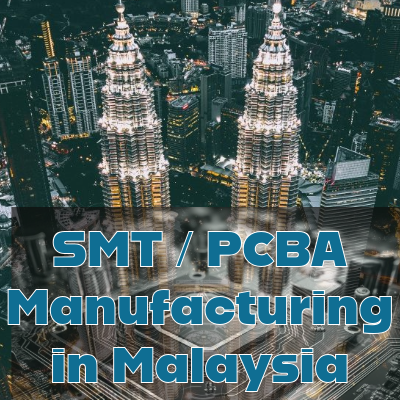The electronics manufacturing landscape in Malaysia has witnessed significant growth, particularly in the realm of Surface Mount Technology (SMT) and Printed Circuit Board Assembly (PCBA). As global demand for sophisticated electronic devices surges, Malaysia has emerged as a pivotal hub, boasting advanced capabilities and innovative practices in these sectors. The Malaysian PCB market is thriving due to strategic investments, a skilled workforce, and robust infrastructure, making it an attractive destination for industry professionals and entrepreneurs alike. This article will delve into the prominent trends shaping the SMT Malaysia scene and highlight the innovations driving the PCBA industry Malaysia forward, establishing the nation as a leader in electronics manufacturing.
Growth of Electronics Manufacturing
Expanding SMT / PCBA Malaysia
Malaysia’s electronics manufacturing sector is experiencing a robust expansion, with Surface Mount Technology (SMT) at the forefront. The country’s strategic location in Southeast Asia, coupled with government incentives, has enticed numerous multinational corporations to establish operations in the region. This influx has led to the development of cutting-edge facilities and the adoption of state-of-the-art SMT processes.
A key factor in this growth is the availability of a skilled workforce proficient in the latest SMT techniques. Malaysian engineers and technicians are increasingly trained in advanced methodologies, such as automated pick-and-place systems, ensuring efficient and high-quality production. Furthermore, the collaboration between industry and academia fosters continuous innovation, keeping Malaysia at the leading edge of SMT technology.

This synergy propels the SMT Malaysia scene, making it a prime destination for electronics manufacturing investments.
Innovations in Surface Mount Technology / SMT
In Malaysia, innovations in Surface Mount Technology (SMT) have significantly propelled the electronics manufacturing sector forward. The integration of artificial intelligence in SMT processes has enhanced precision and efficiency, allowing for quicker assembly times and reduced defects. Advanced vision systems in pick-and-place machines ensure precise component placement, minimizing errors and rework.
Furthermore, the development of lead-free soldering techniques aligns with global environmental standards, showcasing Malaysia’s commitment to sustainable manufacturing practices. The transition to these eco-friendly processes has been supported by substantial research and government incentives, fostering a culture of continual improvement.
Additionally, the implementation of Internet of Things (IoT) solutions allows for real-time monitoring and predictive maintenance of SMT equipment, reducing downtime and enhancing productivity. These technological advancements underscore Malaysia’s position as a leader in the PCBA industry.
These innovations continue to attract investments, solidifying the nation’s role in global electronics manufacturing.
Trends in the PCBA Industry
Malaysian SMT / PCBA Market Dynamics
The Malaysian PCB market is undergoing dynamic changes, driven by a combination of global demand and local advancements. Strategic investments from both government and private sectors have bolstered the industry’s infrastructure, leading to the establishment of state-of-the-art PCB fabrication facilities. These developments have enabled Malaysia to meet the rising demand for high-quality and complex PCB designs.
The market’s adaptability is further highlighted by its response to the increasing trend towards miniaturization and higher component density. Local manufacturers are adopting innovative design techniques and materials that can accommodate these requirements, ensuring competitiveness on the global stage.
Moreover, the emphasis on research and development has fostered a culture of innovation, with Malaysian firms frequently collaborating with international partners to enhance technological capabilities. This thriving market environment not only attracts foreign investment but also provides ample opportunities for local entrepreneurs and startups to thrive.
These dynamics position Malaysia as a key player in the global PCBA industry landscape.
Emerging Technologies in the SMT / PCBA Industry Malaysia
The PCBA industry in Malaysia is rapidly integrating emerging technologies to enhance production efficiency and product quality. One notable advancement is the adoption of advanced robotics and automation systems. These technologies streamline the assembly process, significantly reducing human error and increasing throughput.
Additionally, the implementation of machine learning algorithms for quality inspection has enhanced defect detection and reduced rework rates. This approach ensures that Malaysian PCBA facilities maintain high standards required by global clients.
The industry is also exploring the use of additive manufacturing, or 3D printing, for prototyping and small-scale production. This technology allows for rapid iterations and customization, catering to the evolving demands of the electronics market.
Moreover, the integration of smart manufacturing solutions, including IoT-enabled devices, provides real-time data analytics, optimizing resource usage and predictive maintenance.
Such innovations are setting new benchmarks in the PCBA industry Malaysia, attracting international attention and investment.

Future Outlook and Opportunities
Sustainable Manufacturing Practices
Sustainable manufacturing practices are becoming increasingly vital in the Malaysian electronics industry, aligning with global environmental concerns and regulations. Companies are investing in eco-friendly technologies such as lead-free soldering and renewable energy sources to minimize their carbon footprint. This transition is not only beneficial for the environment but also enhances the marketability of Malaysian products in eco-conscious regions.
The adoption of circular economy principles, where waste materials are recycled or repurposed, is another significant trend. This approach reduces material costs and environmental impact, creating a more sustainable production cycle. Moreover, energy-efficient equipment and processes are being integrated into manufacturing operations, further reducing operational costs and emissions.
These sustainable practices are supported by initiatives from the Malaysian government, which offers incentives and subsidies for green technologies.
These efforts position Malaysia as a leader in sustainable electronics manufacturing, attracting partners and clients who prioritize environmental responsibility.
Strategic Collaborations in Electronics Manufacturing
Strategic collaborations are becoming a cornerstone of Malaysia’s electronics manufacturing sector, fostering innovation and growth. Partnerships between local firms and international tech giants have facilitated the transfer of knowledge and technology, enhancing Malaysia’s competitive edge. These collaborations often focus on joint research and development projects, which drive advancements in Surface Mount Technology and Printed Circuit Board Assembly.
Additionally, academic-industry partnerships are playing a crucial role in cultivating a skilled workforce equipped with the latest technological skills. Universities and research institutions are working closely with industry players to develop specialized training programs and courses. Best practices can be implemented to ensure you are at the forefront of innovation.
Such collaborations also extend into supply chain integration, where Malaysian manufacturers establish strong networks with global suppliers. This connectivity ensures a steady flow of raw materials and components, mitigating risks associated with supply chain disruptions.
These strategic alliances position Malaysia as a collaborative hub in the global electronics manufacturing landscape, attracting further investment and opportunities.
